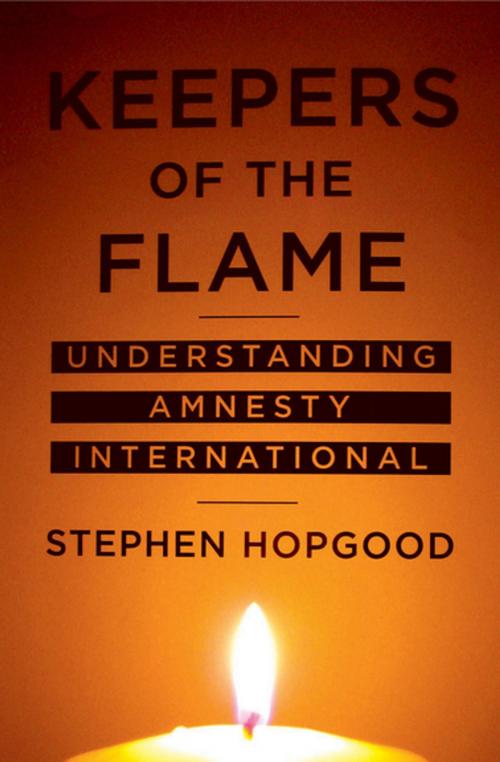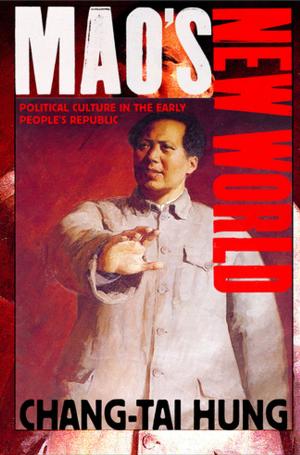Keepers of the Flame
Understanding Amnesty International
Nonfiction, Social & Cultural Studies, Political Science| Author: | Stephen Hopgood | ISBN: | 9780801469831 |
| Publisher: | Cornell University Press | Publication: | December 15, 2009 |
| Imprint: | Cornell University Press | Language: | English |
| Author: | Stephen Hopgood |
| ISBN: | 9780801469831 |
| Publisher: | Cornell University Press |
| Publication: | December 15, 2009 |
| Imprint: | Cornell University Press |
| Language: | English |
"If one organization is synonymous with keeping hope alive, even as a faint glimmer in the darkness of a prison, it is Amnesty International. Amnesty has been the light, and that light was truth—bearing witness to suffering hidden from the eyes of the world."—from Keepers of the FlameThe first in-depth look at working life inside a major human rights organization, Keepers of the Flame charts the history of Amnesty International and the development of its nerve center, the International Secretariat, over forty-five years. Through interviews with staff members, archival research, and unprecedented access to Amnesty International's internal meetings, Stephen Hopgood provides an engrossing and enlightening account of day-to-day operations within the organization, larger decisions about the nature of its mission, and struggles over the implementation of that mission.An enduring feature of Amnesty's inner life, Hopgood finds, has been a recurrent struggle between the "keepers of the flame" who seek to preserve Amnesty's accumulated store of moral authority and reformers who hope to change, modernize, and use that moral authority in ways that its protectors fear may erode the organization's uniqueness. He also explores how this concept of moral authority affects the working lives of the servants of such an ideal and the ways in which it can undermine an institution's political authority over time. Hopgood argues that human-rights activism is a social practice best understood as a secular religion where internal conflict between sacred and profane—the mission and the practicalities of everyday operations—are both unavoidable and necessary.Keepers of the Flame is vital reading for anyone interested in Amnesty International, its accomplishments, agonies, obligations, fears, opportunities, and challenges—or, more broadly, in how humanitarian organizations accommodate the moral passions that energize volunteers and professional staff alike.
"If one organization is synonymous with keeping hope alive, even as a faint glimmer in the darkness of a prison, it is Amnesty International. Amnesty has been the light, and that light was truth—bearing witness to suffering hidden from the eyes of the world."—from Keepers of the FlameThe first in-depth look at working life inside a major human rights organization, Keepers of the Flame charts the history of Amnesty International and the development of its nerve center, the International Secretariat, over forty-five years. Through interviews with staff members, archival research, and unprecedented access to Amnesty International's internal meetings, Stephen Hopgood provides an engrossing and enlightening account of day-to-day operations within the organization, larger decisions about the nature of its mission, and struggles over the implementation of that mission.An enduring feature of Amnesty's inner life, Hopgood finds, has been a recurrent struggle between the "keepers of the flame" who seek to preserve Amnesty's accumulated store of moral authority and reformers who hope to change, modernize, and use that moral authority in ways that its protectors fear may erode the organization's uniqueness. He also explores how this concept of moral authority affects the working lives of the servants of such an ideal and the ways in which it can undermine an institution's political authority over time. Hopgood argues that human-rights activism is a social practice best understood as a secular religion where internal conflict between sacred and profane—the mission and the practicalities of everyday operations—are both unavoidable and necessary.Keepers of the Flame is vital reading for anyone interested in Amnesty International, its accomplishments, agonies, obligations, fears, opportunities, and challenges—or, more broadly, in how humanitarian organizations accommodate the moral passions that energize volunteers and professional staff alike.















